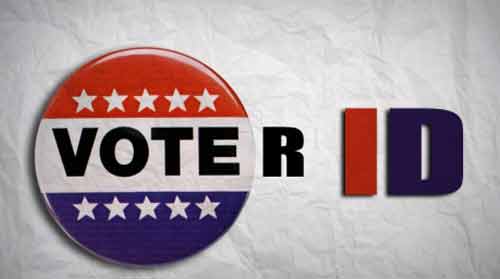By Khalil Abdullah
 (New America Media) Sundeep Iyer, the Brennan Center’s principal quantitative analyst and co-author of the study, said researchers’ conversations with Americans around the country seem to indicate that people generally think voter ID laws are a good thing, but they also feel an ID shouldn’t be made too difficult to get. And that is precisely the point that the study reveals. “The difficulty of obtaining ID is part and parcel of what a voter ID law is about,” Iyer said. “You can’t divorce the voter ID law itself from the difficulty of obtaining voter ID.” The negative effect on individuals and populations “speaks very strongly against the merits of these laws,” he noted.
(New America Media) Sundeep Iyer, the Brennan Center’s principal quantitative analyst and co-author of the study, said researchers’ conversations with Americans around the country seem to indicate that people generally think voter ID laws are a good thing, but they also feel an ID shouldn’t be made too difficult to get. And that is precisely the point that the study reveals. “The difficulty of obtaining ID is part and parcel of what a voter ID law is about,” Iyer said. “You can’t divorce the voter ID law itself from the difficulty of obtaining voter ID.” The negative effect on individuals and populations “speaks very strongly against the merits of these laws,” he noted.
The status of voter ID laws varies among the 10 states surveyed. Alabama’s law will not be in effect in time for this year’s election and the federal court ruling on the Texas law, which was opposed by the Department of Justice, won’t be announced until the end of August. Similarly, South Carolina and Mississippi laws are pending federal approval. Photo ID laws are currently in effect in Georgia, Indiana, Kansas, Pennsylvania and Tennessee. Pennsylvania’s law is also being challenged in a lawsuit, and Wisconsin’s proposed laws are still tied up in state court.
Lawrence Norden, deputy director of the Democracy Program at the Brennan Center, cast the issue of voter ID laws in moral terms. He noted that Jose Zuniga had voted for decades under Texas’s prior ID laws and that there are thousands of Americans like him who will now have to struggle to exercise their right to vote.
The initiative behind the photo ID laws, Norden observed, “betrays the idea that, in the United States, we ensure that all people have equal access to the franchise.”




